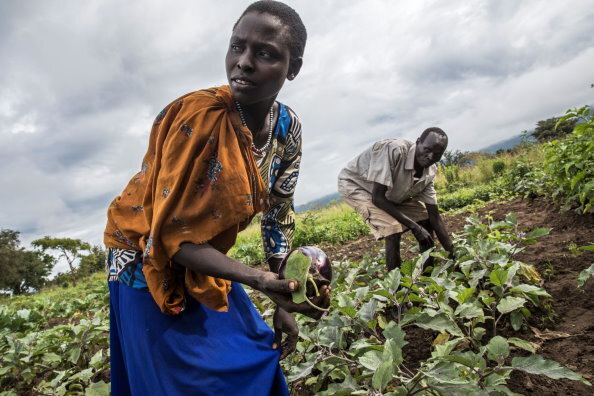Japan helps strengthen communities' resilience in South Sudan

The funds will be used to provide assistance to more than 41,000 people—including displaced people and returnees in Warrap, Unity and Lakes states, helping them meet their immediate food needs while rebuilding their lives and livelihoods through creating assets such as vegetable gardens, flood dykes and access roads.
“It is crucial to enhance the food security in South Sudan,” says H.E. Seiji Okada, Ambassador of Japan to South Sudan. “This is critical so that the peace dividend can be received by the people in the wake of the formation of the transitional government of national unity and strengthening communities’ resilience against the COVID-19 pandemic.”
The contribution comes at a crucial time. South Sudan has been dealing with multiple crises, following years of conflict, a drought episode in 2019, floods last autumn that decimated the harvest in many rural areas, a locust invasion in 2020 and now the COVID-19 pandemic and its consequences.
“We are grateful to the Government of Japan for the timely support,” says Matthew Hollingworth, WFP’s Country Director in South Sudan. “The contribution is invaluable, particularly as we ramp up efforts to respond to growing needs. For the most vulnerable, they need our help and they need it now more than ever.”
Some 6.5 million people—more than half the population— will be food insecure at the height of the hunger season when food stocks run out and before the new harvest comes in between May and July. The number of people in need is expected to rise following a recent invasion of locusts and the impact of the COVID-19 pandemic on jobs, food prices and supply chains.
WFP’s food security and resilience activities are designed to address both current food needs, while promoting the ability of vulnerable communities to withstand future shocks to their food security, such as droughts and floods. In 2019, WFP supported 600,000 people through its food assistance for assets activities across the country.
In 2020, WFP plans to widen its resilience building to include more and more people particularly as the country consolidates its peace process.
The Government of Japan is a long-standing partner of WFP’s activities in South Sudan. The latest contribution brings Japan’s total contributions to WFP activities in the country to US$52.3 million since 2012.
# # #
The United Nations World Food Programme is the world’s largest humanitarian organization, saving lives in emergencies, building prosperity and supporting a sustainable future for people recovering from conflict, disasters and the impact of climate change.
Follow us on Twitter @WFP_SouthSudan
Topics
Japan South Sudan Food security Funding PartnershipsContact
For more information please contact (email address: firstname.lastname@wfp.org):
Tomson Phiri, WFP/South Sudan
Mob. +211 922 465 247
